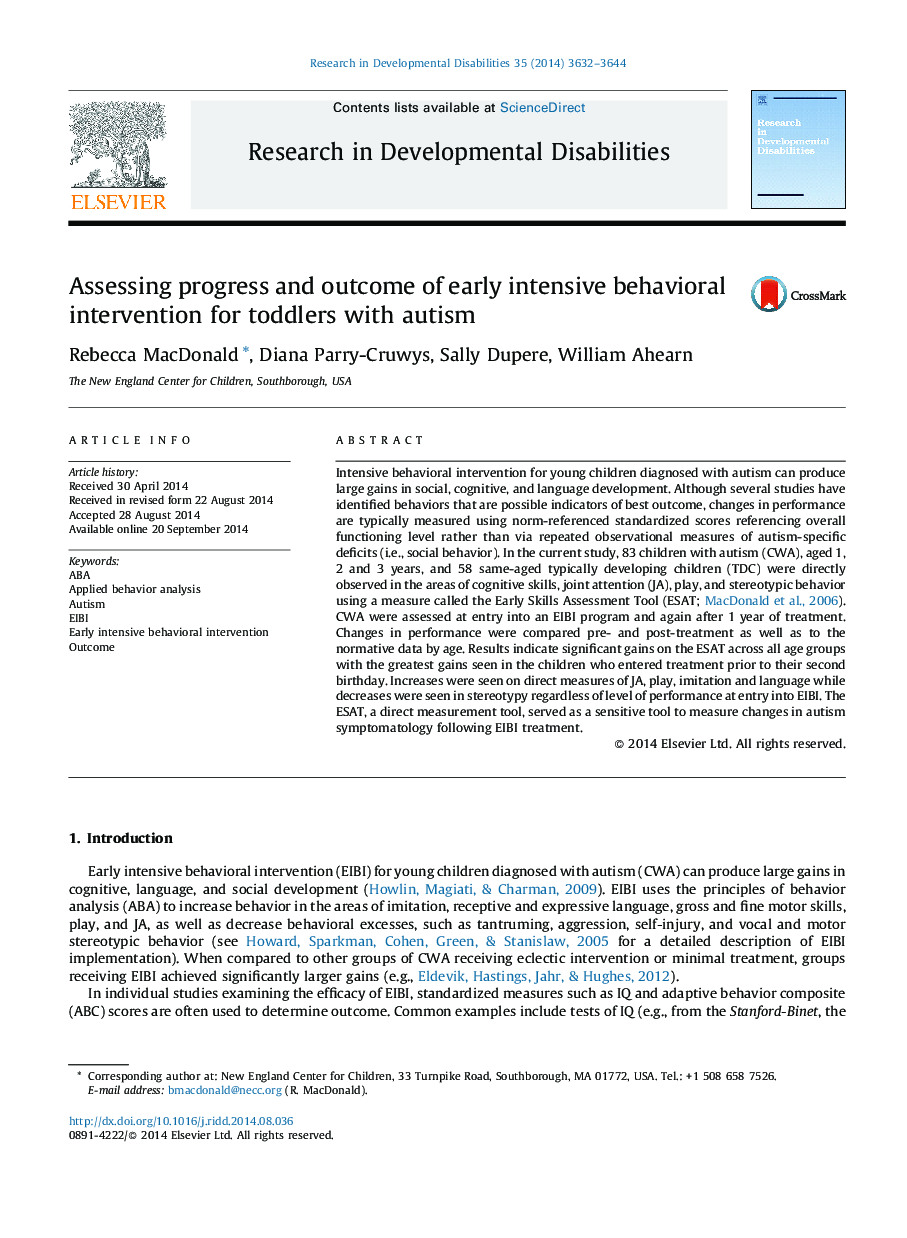| کد مقاله | کد نشریه | سال انتشار | مقاله انگلیسی | نسخه تمام متن |
|---|---|---|---|---|
| 10317486 | 621915 | 2014 | 13 صفحه PDF | دانلود رایگان |
عنوان انگلیسی مقاله ISI
Assessing progress and outcome of early intensive behavioral intervention for toddlers with autism
ترجمه فارسی عنوان
ارزیابی پیشرفت و نتیجهگیری مداخلات ابتدایی رفتاری فوری برای کودکان مبتلا به اوتیسم
دانلود مقاله + سفارش ترجمه
دانلود مقاله ISI انگلیسی
رایگان برای ایرانیان
کلمات کلیدی
موضوعات مرتبط
علوم زیستی و بیوفناوری
علم عصب شناسی
علوم اعصاب رفتاری
چکیده انگلیسی
Intensive behavioral intervention for young children diagnosed with autism can produce large gains in social, cognitive, and language development. Although several studies have identified behaviors that are possible indicators of best outcome, changes in performance are typically measured using norm-referenced standardized scores referencing overall functioning level rather than via repeated observational measures of autism-specific deficits (i.e., social behavior). In the current study, 83 children with autism (CWA), aged 1, 2 and 3 years, and 58 same-aged typically developing children (TDC) were directly observed in the areas of cognitive skills, joint attention (JA), play, and stereotypic behavior using a measure called the Early Skills Assessment Tool (ESAT; MacDonald et al., 2006). CWA were assessed at entry into an EIBI program and again after 1 year of treatment. Changes in performance were compared pre- and post-treatment as well as to the normative data by age. Results indicate significant gains on the ESAT across all age groups with the greatest gains seen in the children who entered treatment prior to their second birthday. Increases were seen on direct measures of JA, play, imitation and language while decreases were seen in stereotypy regardless of level of performance at entry into EIBI. The ESAT, a direct measurement tool, served as a sensitive tool to measure changes in autism symptomatology following EIBI treatment.
ناشر
Database: Elsevier - ScienceDirect (ساینس دایرکت)
Journal: Research in Developmental Disabilities - Volume 35, Issue 12, December 2014, Pages 3632-3644
Journal: Research in Developmental Disabilities - Volume 35, Issue 12, December 2014, Pages 3632-3644
نویسندگان
Rebecca MacDonald, Diana Parry-Cruwys, Sally Dupere, William Ahearn,
